Community articles — Tufte
Edward Tufte is a pioneer in the field of data visualization, and his works have inspired the creation of two LaTeX classes for books and handouts, along with other style elements often present in LaTeX documents. Checkout a selection below.
Recent
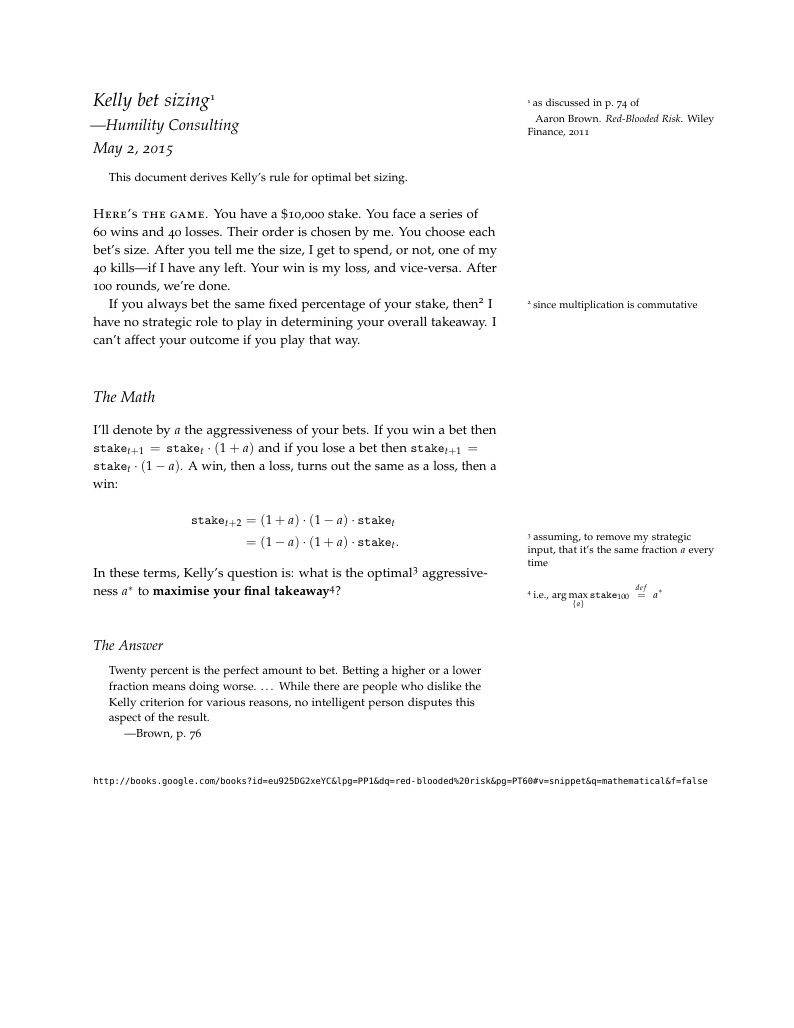
This document derives Kelly's rule for optimal bet sizing.
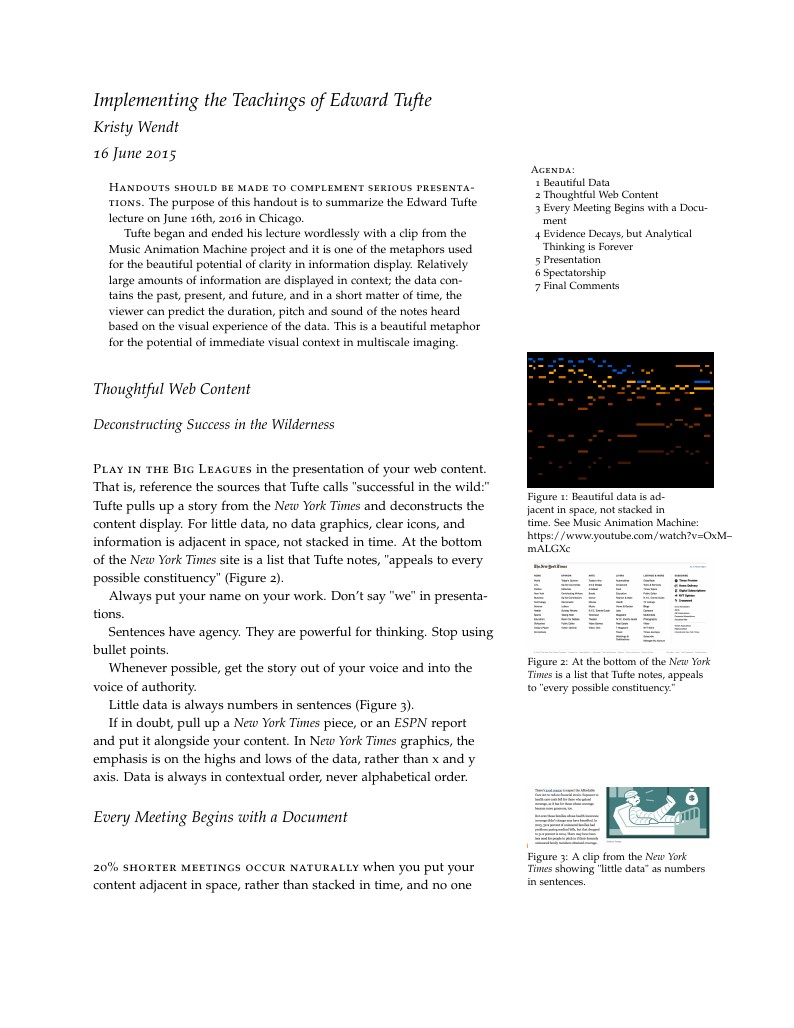
Handouts should be made to complement serious presentations. The purpose of this handout is to summarize the Edward Tufte lecture on June 16th, 2016 in Chicago. Tufte began and ended his lecture wordlessly with a clip from the Music Animation Machine project and it is one of the metaphors used for the beautiful potential of clarity in information display. Relatively large amounts of information are displayed in context; the data contains the past, present, and future, and in a short matter of time, the viewer can predict the duration, pitch and sound of the notes heard based on the visual experience of the data. This is a beautiful metaphor for the potential of immediate visual context in multiscale imaging.
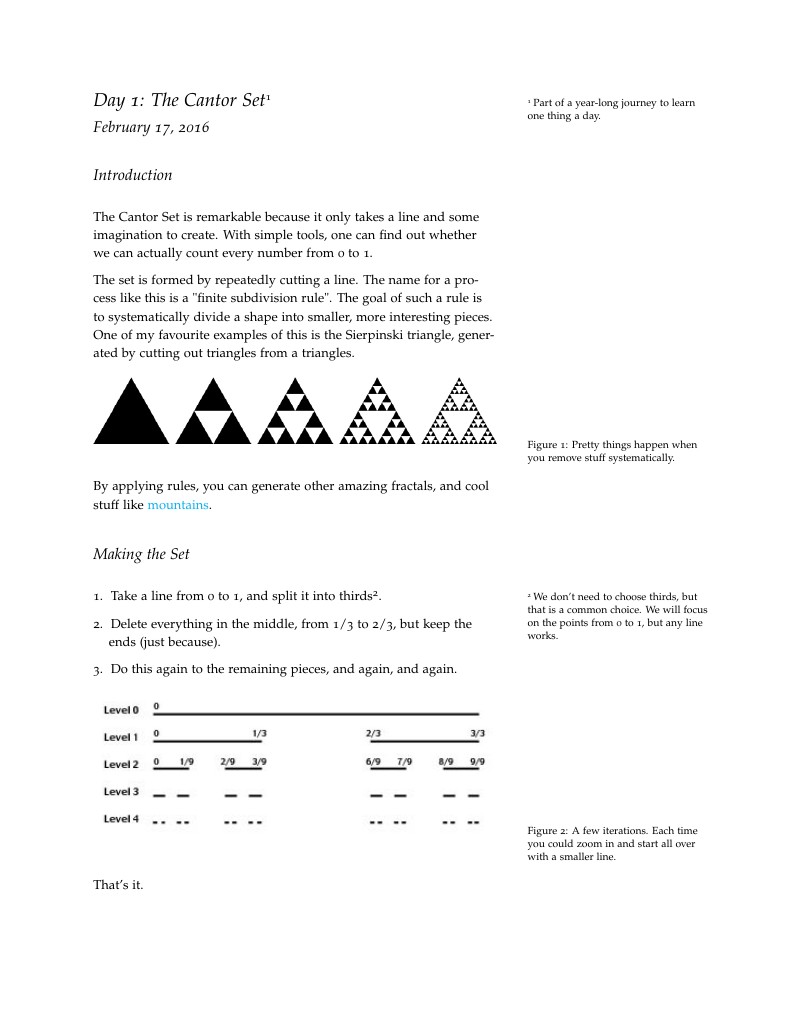
An overview of the Cantor Set and its connection to counting.
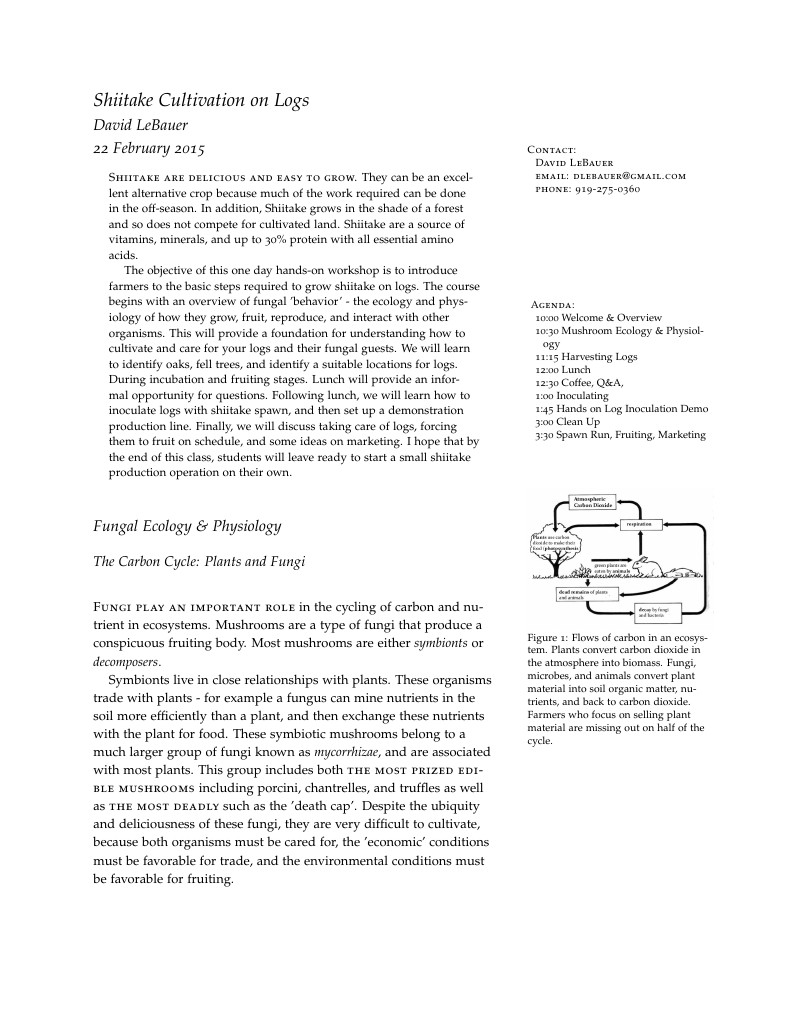
Shiitake are delicious and easy to grow. They can be an excellent alternative crop because much of the work required can be done in the off-season. In addition, Shiitake grows in the shade of a forest and so does not compete for cultivated land. Shiitake are a source of vitamins, minerals, and up to 30\% protein with all essential amino acids. The objective of this one day hands-on workshop is to introduce farmers to the basic steps required to grow shiitake on logs. The course begins with an overview of fungal 'behavior' - the ecology and physiology of how they grow, fruit, reproduce, and interact with other organisms. This will provide a foundation for understanding how to cultivate and care for your logs and their fungal guests. We will learn to identify oaks, fell trees, and identify a suitable locations for logs. During incubation and fruiting stages. Lunch will provide an informal opportunity for questions. Following lunch, we will learn how to inoculate logs with shiitake spawn, and then set up a demonstration production line. Finally, we will discuss taking care of logs, forcing them to fruit on schedule, and some ideas on marketing. I hope that by the end of this class, students will leave ready to start a small shiitake production operation on their own.
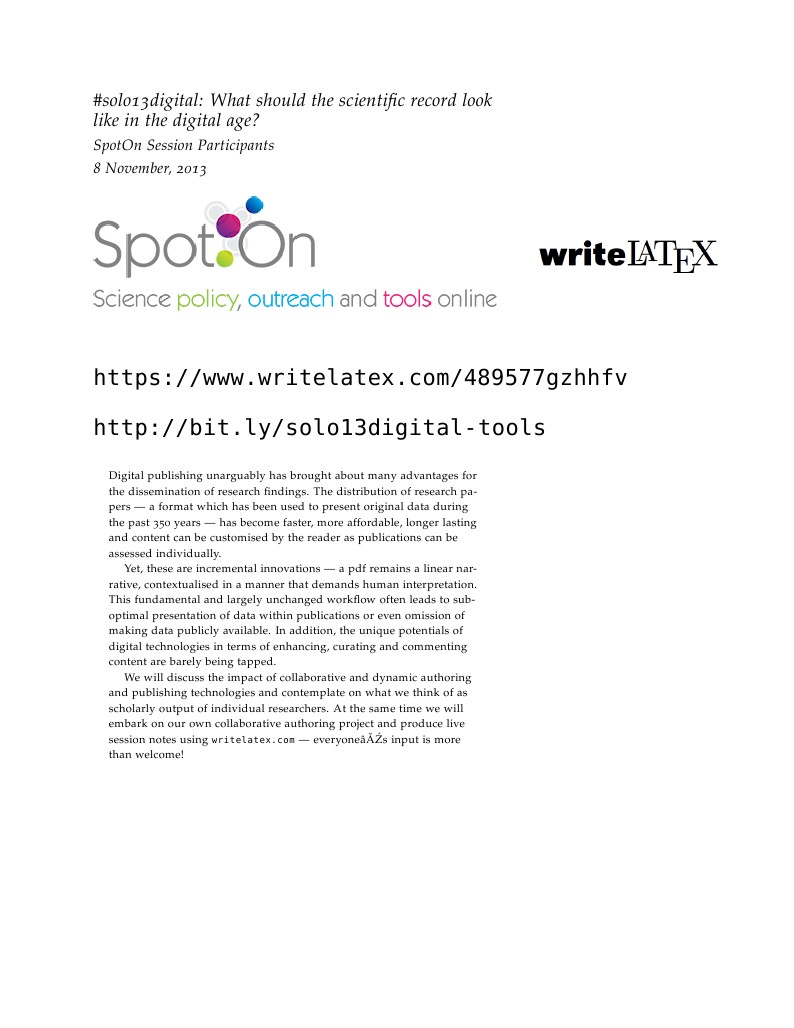
Digital publishing unarguably has brought about many advantages for the dissemination of research findings. The distribution of research papers --- a format which has been used to present original data during the past 350 years --- has become faster, more affordable, longer lasting and content can be customised by the reader as publications can be assessed individually. Yet, these are incremental innovations --- a pdf remains a linear narrative, contextualised in a manner that demands human interpretation. This fundamental and largely unchanged workflow often leads to suboptimal presentation of data within publications or even omission of making data publicly available. In addition, the unique potentials of digital technologies in terms of enhancing, curating and commenting content are barely being tapped. We will discuss the impact of collaborative and dynamic authoring and publishing technologies and contemplate on what we think of as scholarly output of individual researchers. At the same time we will embark on our own collaborative authoring project and produce live session notes using writelatex.com --- everyone’s input is more than welcome!
\begin
Discover why over 25 million people worldwide trust Overleaf with their work.